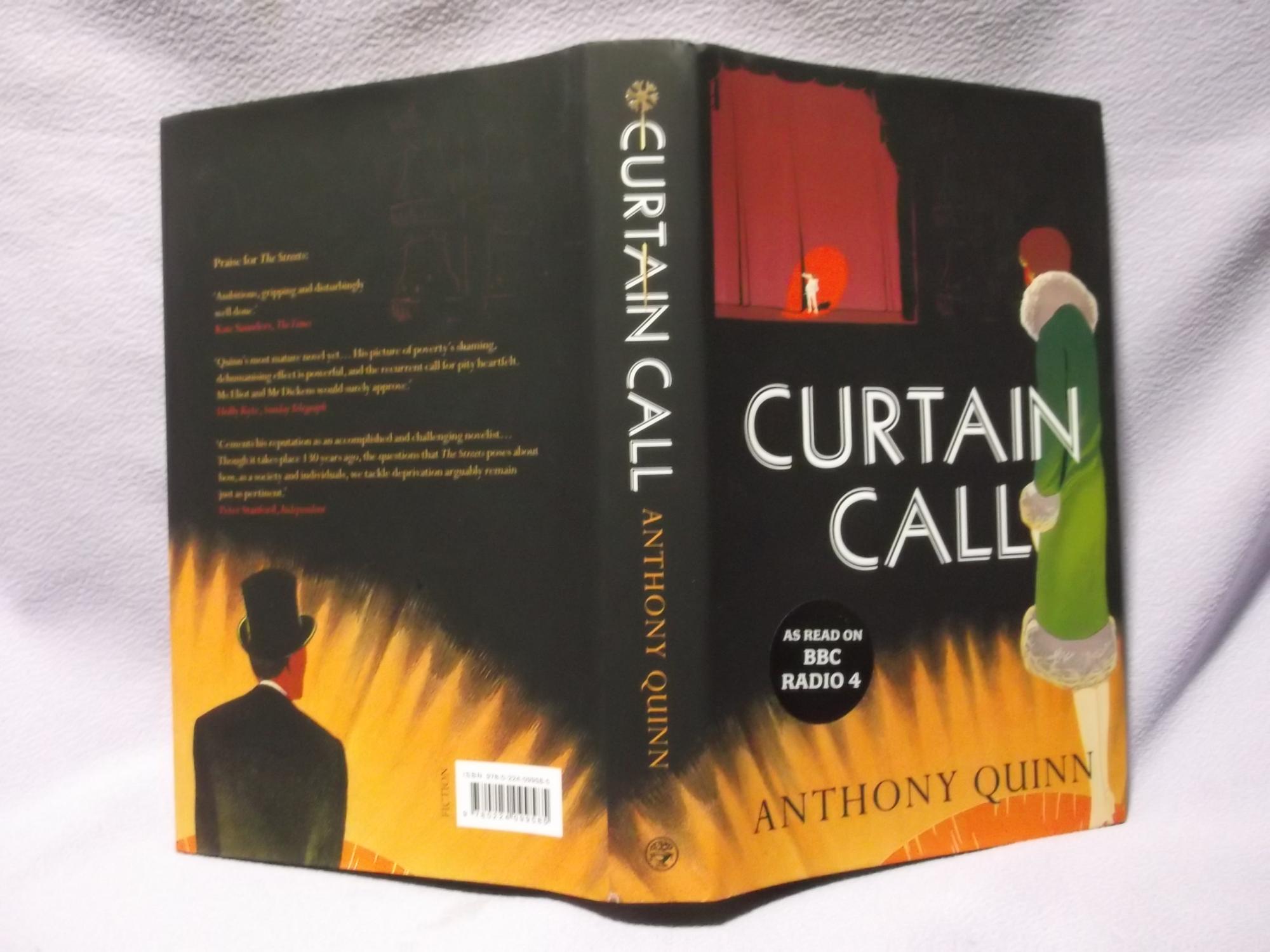Life getting in the way of your cultural cravings? Try immersing yourself in literary auditoria and fictional thesps.
I've found myself favouring the page over the screen recently. Possibly because the nature of working 'unsociable' hours doesn't lend itself particularly well to indulging in Netflix when I get in; I do have a flatmate and neighbours to consider, after all. Perhaps due to this or my tendency to travel long distances, I stumbled upon a means of quenching my thirst for both literature and theatre without having to leave the comfort of my own home (or train/Megabus seat, as appropriate). As most industry professionals will know, one of the paradoxes of working in the theatre (dah-ling) is that one's vocational commitments - although primarily in the theatre - will often prohit one from seeing productions, the love of which activity being more often than not the reason you pursued this particular career in the first place. This was certainly the case when I was a Duty Manager - the curse of forever being in the theatre, but never going to the theatre. The situation hasn't much improved with my now working between the hospitality industry and my own creative pursuits. My financial situation also has a lot to answer for.
Having finished my latest historical, war-ridden paperback, which had been enjoyable, but nevertheless heavier than a hippo with an under-active thyroid, I was craving something a little closer to home. I reached for Curtain Call by Anthony Quinn, the title being a dead giveaway that I might get along particularly well with this one. Curtain Call, set primarily in London's West End, is a combination of murder, betrayal, fame, sexuality, and a country on the brink of war (WWII, to be precise). So, yes, another 'historical' novel, but not quite so close to the bone as Winter in Madrid. What I want to talk about is how well and precisely Quinn manages to replicate the 'world' of the theatre, and why anyone interested in the art should read this book. Two of the central characters are an actress (Nina Land) and a theatre critic (Jimmy Erskine). Whether Quinn has ever tread the boards or worked on either side of the curtain I don't know, but he's certainly done his research.
He describes Nina's dressing room table as "a battlefield of chaos of pots, paints and cratered powders, littered with the used ammo of lipsticks and blunted eyebrow pencils, glittering puddles of jewellery, corpses of cigarettes twisted in ashtrays and the bomb-site tumulus of a discarded feather boa.", an image - putting aside for the moment the clear foreboding war imagery - so accurate, especially pertaining to a performer whom has enjoyed several weeks at the same house, that it must be from first-hand experience. Moreover, the way the characters find analogies for their lives in works of literature - Nina likening a personal situation to the plot of King Lear and Jimmy quoting Macbeth in his head to describe insomnia - "Sleep that knits up the ravelled sleave of care..." - is true to those who are immersed in such works day-to-day and cannot help but see the relevance of recurring themes, etched into their minds, in the banality of modern life.
Quinn also captures perfectly the feel of a typical West End theatre; the rapid transition between the Get Out of one huge production and the Get In of another: "The Strand Theatre already appeared to have forgotten her recent triumph. All the signs advertising The Second Arrangement had been taken down, including the lights that had picked out her own name below the title. It was like returning to your old home to find it brutally refurbished, unrecognisable, all traces of your occupancy erased.". This rings all too true of my days in a receiving house - no sooner had Wicked (then its Scottish debut and just about the biggest cultural event in Glasgow) ended than some sort of amateur or spoken word production had replaced and eclipsed all evidence of its existence. C'est la vie.
Quinn perfectly observes the very atmosphere of Theatreland on any given evening: "St Martin's lane was aswarm with the theatre crowds just emerging from their evening;s entertainment, the pavements thronged with men carrying the odour of sixpenny cigars and women wearing fake pearls and implausible hats." - this will be a very familiar image for anyone who's been in or around The Theatre Royal Glasgow at any point. he even goes down to as fine a detail as to describe how Jimmy started his career as a modest rep actor, but lacked success due to his less than typically good-looking appearance. Choosing the pen over the stage being the fate, I daresay, of many a frustrated thespian: "The performer in him had not been wholly thwarted; henceforth he would create his own sort of drama from the stalls, to be enjoyed in print the next day.".
Stylistically, Quinn is more Ruth Rendell than Iain Banks, but Curtain Call is just as much a character study as a whodunit. So, if you're stuck for a free evening or the price of a ticket, or the local listings just don't inspire you enough, I'd thoroughly recommend this little gem to tide you over between theatrical visits.
Curtain Call, Anthony Quinn, Penguin Vintage 2015

No comments:
Post a Comment